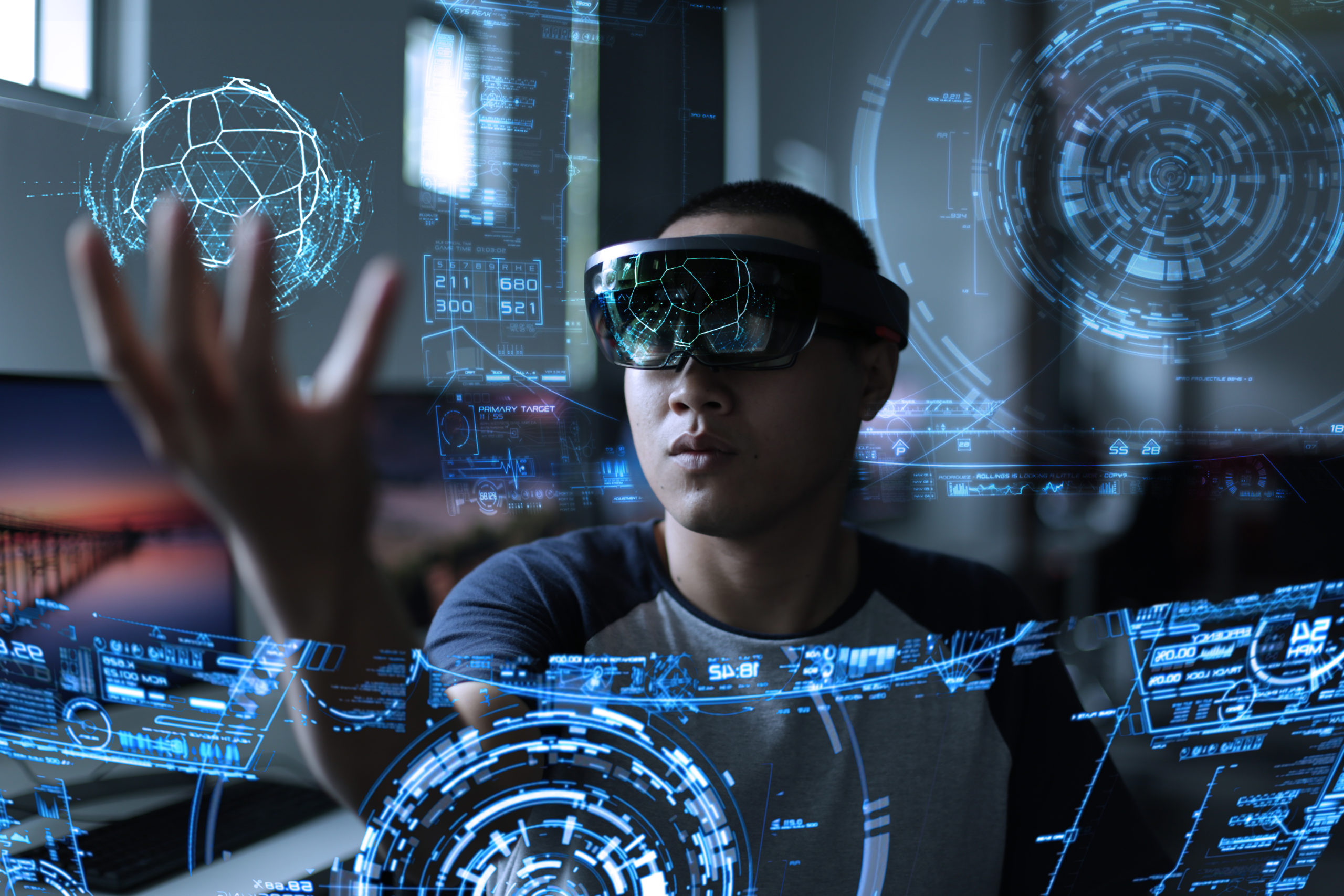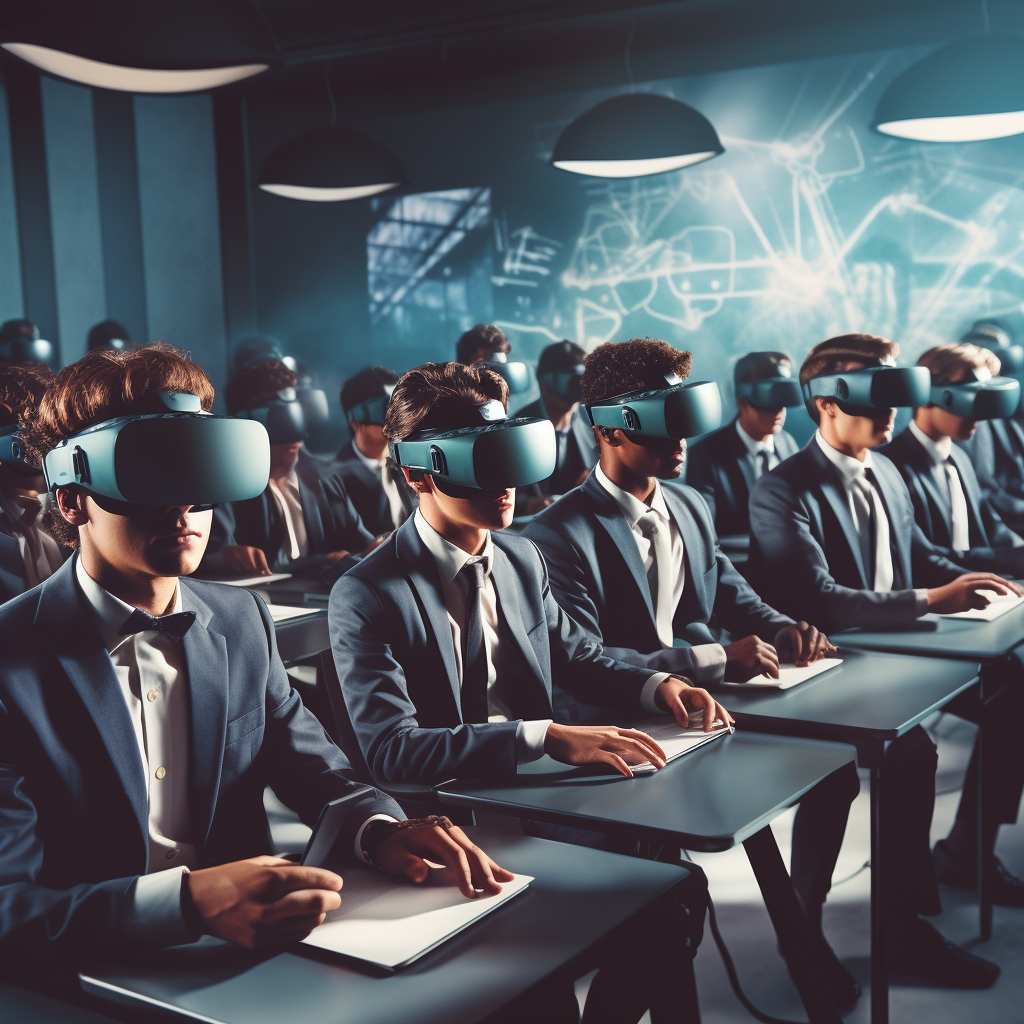The Future of Virtual Reality

 The Future of Virtual Reality: A New Frontier in Technology
The Future of Virtual Reality: A New Frontier in Technology
Virtual Reality (VR) has come a long way since its inception, evolving from a niche technology to one that is influencing multiple industries and transforming the way we interact with the digital world. The future of VR is incredibly exciting, offering endless possibilities for both personal and professional use. As advancements in technology continue to unfold, VR is poised to become an integral part of our everyday lives, bringing innovative solutions across various sectors.
1. The Evolution of Virtual Reality
The journey of virtual reality began in the 1960s with the development of early VR systems, but it wasn’t until the last decade that VR technology became mainstream. With the rise of affordable headsets, powerful computing capabilities, and an explosion of VR applications, the technology has finally reached a tipping point.
Today, VR systems are no longer just limited to gaming; they have expanded into industries like healthcare, education, entertainment, real estate, and more. As we look ahead, the next phase of VR promises even greater advancements, thanks to developments in hardware, software, and immersive experiences.
2. Immersive Experiences Like Never Before
In the future, VR will offer hyper-realistic and fully immersive experiences that will be indistinguishable from reality. The combination of high-resolution displays, improved tracking technologies, and haptic feedback devices will enable users to feel, hear, and see in ways that current VR systems can only dream of.
For instance, VR experiences could allow us to visit distant planets or historic places, interact with digital twins of real-world environments, or engage in simulations that provide life-like experiences. These advances will redefine industries, particularly entertainment, allowing users to experience fully interactive movies, concerts, and sports events as if they were right there in the middle of the action.
3. Virtual Reality in Healthcare: A Game Changer
The healthcare industry is already benefiting from VR in significant ways, and the future promises even more groundbreaking applications. VR is already being used for training medical professionals, enabling them to practice surgeries and procedures in a risk-free, simulated environment. In the coming years, VR could revolutionize the way doctors diagnose, treat, and even interact with patients.
For example, VR could be used for remote patient consultations, making healthcare more accessible. Additionally, VR has shown promising results in helping patients recover from physical injuries, reduce anxiety, and treat mental health issues such as PTSD and depression. In the future, personalized VR therapies could be tailored to meet the needs of individual patients, offering more effective treatments.
4. Virtual Reality in Education: A New Era of Learning
The future of education is another area where VR will shine. Virtual classrooms, where students can interact with teachers and peers in 3D environments, are just the beginning. VR can break down geographical and physical barriers, allowing students to explore virtual field trips to historical landmarks or experience hands-on learning in a completely immersive environment.
The future may bring a more personalized learning experience, where VR adapts to individual learning styles, helping students grasp complex concepts in a more engaging and interactive way. For instance, a student studying biology could explore the inner workings of the human body through a fully interactive VR simulation, providing a deeper understanding than traditional textbooks ever could.
5. The Metaverse: A Digital World within a World
One of the most exciting prospects for the future of VR is the rise of the Metaverse—a digital universe where people can interact in real-time through avatars. The Metaverse promises to merge the digital and physical worlds, creating immersive environments where people can socialize, work, play, and shop as if they were in the same room.
Major tech companies like Facebook (now Meta) are already investing heavily in the Metaverse, and as VR technology becomes more advanced, we will likely see an expansion of virtual worlds where users can create their own identities, businesses, and communities. The Metaverse could reshape the way we connect with one another, work remotely, and even conduct commerce.
6. Virtual Reality in Business and Collaboration
VR will also revolutionize the workplace by offering innovative solutions for collaboration, training, and remote work. With the power of VR, companies can create virtual office environments where employees can meet, brainstorm, and collaborate, no matter where they are in the world. This could eliminate the need for traditional office spaces and create a more flexible, dynamic work environment.
Additionally, VR-powered training programs will allow employees to simulate real-world scenarios, enabling them to hone their skills in a controlled, risk-free setting. For example, VR training is already being used in industries like aviation and manufacturing, where workers can practice emergency procedures or operating machinery without actual risk.
7. Challenges Ahead: Accessibility, Affordability, and Ethics
While the future of VR is bright, there are still several challenges that need to be addressed before it can fully integrate into our daily lives. One of the main obstacles is accessibility—VR systems remain expensive, and not everyone has access to the necessary hardware and high-speed internet required for an optimal experience.
Additionally, there are concerns about privacy and ethics in VR, particularly in the Metaverse, where personal data and virtual behaviors will be closely monitored. Ensuring that users’ data is secure and that ethical guidelines are in place will be critical as VR technology continues to evolve.
Conclusion
The future of virtual reality is boundless, offering incredible potential for improving healthcare, education, business, entertainment, and social interaction. As technology continues to advance, VR will become a fundamental part of our digital lives, creating immersive experiences that blur the lines between the physical and virtual worlds.
While there are challenges to overcome, the excitement surrounding VR is undeniable. At Dear IT Solution, we are committed to staying at the forefront of technological advancements and helping you navigate this brave new world. Whether you're looking to explore VR for your business, educational institution, or personal use, we’re here to provide the tools and support you need to harness the full potential of virtual reality.
For more information on how to get started with VR, visit our website at Dear IT Solution





Leave a Comment